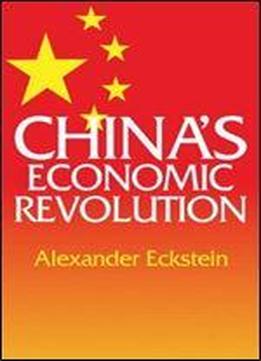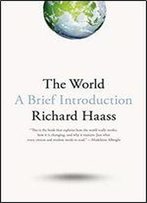
China's Economic Revolution
by Alexander Eckstein /
1977 / English / PDF
6.2 MB Download
Professor Eckstein's book is a study of China's efforts to achieve rapid modernization of its economy within a socialist framework. Eckstein begins with an examination of economic development in pre-Communist China, specifically focusing on the resources and liabilities inherited by the new regime in 1949 and their effects on development policies. He then analyses the economic objectives of the Communist leadership - narrowing income disparities, maintaining full employment without inflation, and achieving rapid industrialization - and argues that the implementation of these goals required a potent ideology capable of providing a strong faith and motivational force for the mass mobilization of resources. In discussing the methods used by the government to achieve its aims, Eckstein makes a thorough evaluation of China's general framework for economic planning, particularly in regard to the distribution and pricing of farm products and the allocation of resources in the industrial sector. The author also evaluates the radical institutional changes in property relations and in economic organization in the People's Republic of ChinaProfessor Eckstein's book is a study of China's efforts to achieve rapid modernization of its economy within a socialist framework. Eckstein begins with an examination of economic development in pre-Communist China, specifically focusing on the resources and liabilities inherited by the new regime in 1949 and their effects on development policies. He then analyses the economic objectives of the Communist leadership - narrowing income disparities, maintaining full employment without inflation, and achieving rapid industrialization - and argues that the implementation of these goals required a potent ideology capable of providing a strong faith and motivational force for the mass mobilization of resources. In discussing the methods used by the government to achieve its aims, Eckstein makes a thorough evaluation of China's general framework for economic planning, particularly in regard to the distribution and pricing of farm products and the allocation of resources in the industrial sector. The author also evaluates the radical institutional changes in property relations and in economic organization in the People's Republic of China.











